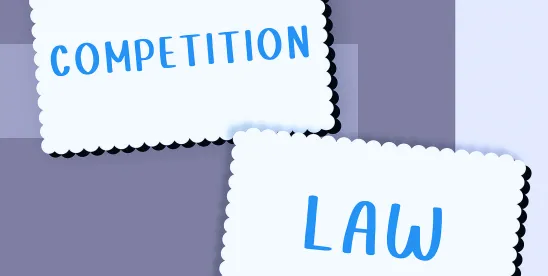China’s Anti-Unfair Competition Law (“AUCL”) has been amended twice since its enactment in 1993, first in 2017 and another in 2019. On December 25, 2024, the Standing Committee of the National People’s Congress released a Draft Revision to the Anti-Unfair Competition Law (the “Draft Revision”) for public comment. The public consultation period will end on January 24, 2025.
Below is a brief analysis of the key revisions proposed in the Draft Revision.
I. Introduction of Platform Operators’ Responsibilities
One key amendment to the AUCL in the Draft Revision is that the Draft Revision has imposed on platform operators (i.e., operators who provide internet platform services, such as business premises, transaction matching, and information exchange, to natural persons, legal persons, and other market entities) two primary obligations. Specifically, a platform operator should (i) in its platform service agreements with its customers and its platforms’ transaction rules, incorporate such provisions to ensure fair competition among its customers; (ii) take necessary measures to prevent unfair competition practices by its customers operating on the platform.
The current AUCL prohibits operators engaging in production and business activities through the internet from using “technical means” to influence user choices or disrupt the normal business operations of other operators. The Draft Revision replaces “technical means” with “data and algorithms, technology, platform rules, etc.” and explicitly prohibits the misuse of platform rules to conduct malicious transactions. For example, operators are prohibited from obtaining and using other operators’ legally held data through fraud, coercion, electronic intrusion or other inappropriate means.
Furthermore, Article 14 of the Draft Revision explicitly prohibits platform operators from forcing businesses operating on the platforms to sell goods at prices below cost in accordance with the platform operators’ pricing rules, which conduct is deemed to interfere with fair competition.
II. Introduction of Specific Provisions on Confusion
1. Expansion of Protected Commercial Identifiers
To address issues related to the protection of commercial identifiers, such as disputes over the infringement of App icons, the Draft Revision explicitly includes names of non-legal organizations, names and icons of new media accounts, and application names and icons as protected commercial identifiers.
2. Prohibition on Confusion through Search Keyword Manipulation
The Draft Revision prohibits operators from setting, without authorization, the names of others’ products or enterprises (including abbreviations, trade names, etc.) as search keywords, if such product names or company names have a certain level of influence. This is aimed at preventing misleading search results that confuse consumers.
3. Introduction of Liability for Assisting in Confusion
A new provision has been added in Article 7 of the Draft Revision, explicitly stating that operators shall not facilitate others’ conducts that would cause confusion. Correspondingly, the provisions on legal liability in the Draft Revision introduces administrative penalties for such facilitative conducts.
4. New Exemption from Penalties for Sellers
The Draft Revision adds a provision that allows sellers to avoid administrative penalties if they can provide evidence showing they have acted without subjective fault.
III. Introduction of Acceptance of Bribes as an Unfair Competition Act
Under the current AUCL, offering bribes is deemed an unfair competition practice but accepting bribes is not. The Draft Revision explicitly prohibits organizations and individuals from accepting commercial bribes. Additionally, it introduces a dual penalty system, imposing penalties on both the recipient and the giver of a bribe. Specifically, the Draft Revision stipulates a fine of up to 2 million RMB for companies and 500,000 RMB for individuals who accept commercial bribes.
IV. Introduction of Regulation on Abuse of Dominant Position by Large Enterprises
The Draft Revision stipulates that large enterprises are prohibited from abusing their advantages in capital, technology, transaction channels, industry influence, and other factors to disrupt fair competition. They cannot impose unreasonable payment terms, payment methods, payment deadlines, or breach liabilities on small and medium-sized enterprises, nor force them into exclusive agreements or engage in similar unfair practices.
Traditionally, the Anti-Monopoly Law targets only enterprises with market dominance, while those without such dominance have the freedom to choose trading partners, methods, and transactions. However, in practice, large enterprises, though not dominant, often impose unfair restrictions, making it difficult for their business partners or other third parties to evoke the remedies available under the Anti-Monopoly Law to protect their interests. There is hope that the Draft Revision will address this issue, particularly in cases where large enterprises use their advantageous position to urge business partners to sign exclusive agreements with them.
V. Improvement of Commercial Defamation Behavior
Operators are prohibited from engaging in commercial defamation by fabricating or disseminating false or misleading information under current AUCL. The Draft Revision expands the scope of commercial defamation to include cases where an individual instructs others to engage in such behavior, holding the instigator accountable. Furthermore, the term “damaging the reputation or credibility of competitors” has been broadened to “damaging the reputation or credibility of other operators.” This revision extends the scope of affected parties beyond just competitors to include all “other operators,” which helps regulate this unfair practice more effectively.
VI. Addition of Legal Application for Extraterritorial Acts
The Draft Revision references the Anti-Monopoly Law and introduces a provision in the annex regarding the legal applicability of acts occurring outside of China but having consequences within China. Specifically, it stipulates that acts that violate AUCL, even if occurred abroad, can be subject to legal action under this law if they cause harm within China.




 />i
/>i

